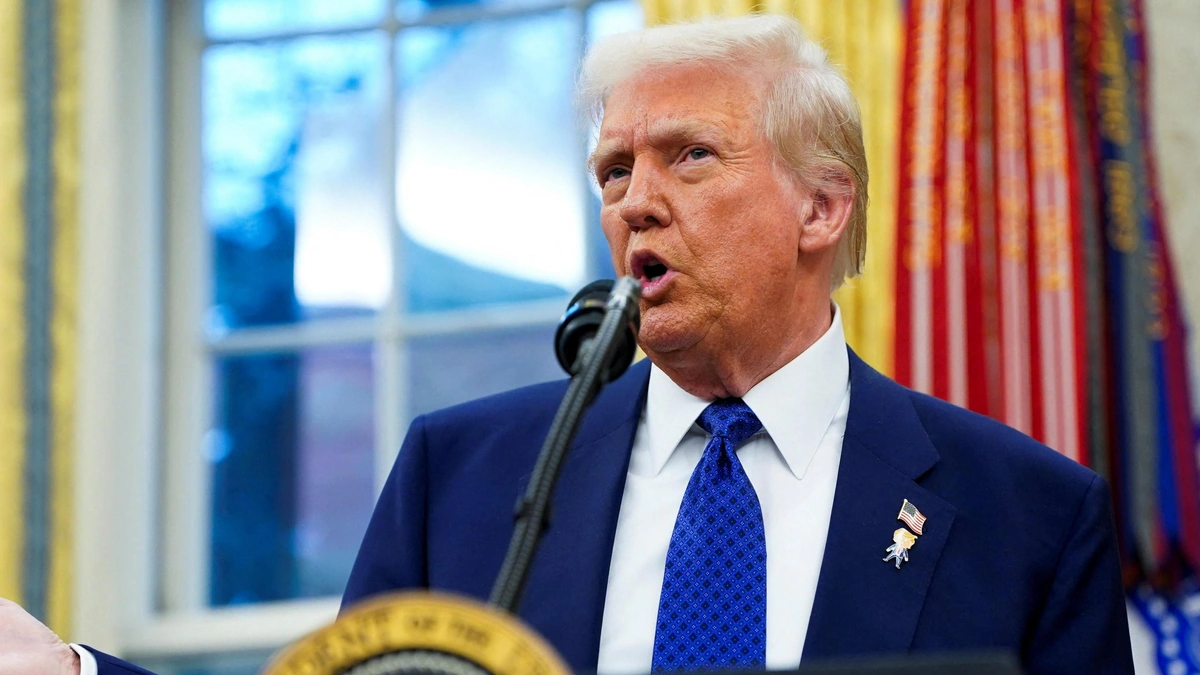Alright, let’s dive into something that’s been brewing for a while now, something that’s less about policy and more about… well, let’s call it Trump’s War . Not a war in the traditional sense, of course, but a persistent, escalating conflict right here on American soil. What fascinates me is how this “war” isn’t fought with bullets, but with words, with tweets, with rallies, and ultimately, with the very fabric of our society.
The Battlefield | American Institutions

Here’s the thing: When we talk about Trump’s escalating war, we’re not just talking about political disagreements. We’re talking about a systematic dismantling – or at least an attempted dismantling – of the institutions that hold America together. Think about it: the media, the judiciary, the intelligence community, even the electoral process itself. Each has come under sustained attack. Why? That’s the million-dollar question, isn’t it? Is it simply ego? A genuine belief that these institutions are corrupt? Or is there a more calculated strategy at play? I initially thought this was straightforward, but then I realized the layers of complexity involved. It’s not just about disagreeing with a court ruling; it’s about delegitimizing the entire judicial system. It’s not about criticizing a news report; it’s about branding the entire media as “fake news.” This delegitimization erodes public trust, and that’s where the real danger lies.
The Weapons of Choice | Disinformation and Division
So, how is this “war” being waged? Primarily through the spread of disinformation and the exploitation of existing divisions. Now, this isn’t new. Politicians have always spun narratives. But Trump’s approach is different – it’s relentless, often factually challenged, and delivered with an unwavering conviction that resonates with a specific segment of the population. The use of social media, especially platforms that reward engagement above accuracy, amplifies these messages. What fascinates me is the effectiveness of this strategy, even when the claims are demonstrably false. It plays on pre-existing biases, fears, and grievances, creating echo chambers where dissenting voices are drowned out. But, and this is a big but, this constant barrage of negativity takes a toll. It creates a climate of distrust, anxiety, and even anger. And a divided America is a vulnerable America. Check out more insights about politics here .
The Casualties | Truth and Trust
Let’s be honest, the biggest casualties in this “war” are truth and trust . When facts are constantly questioned, when expertise is dismissed, and when every piece of information is viewed through a partisan lens, it becomes incredibly difficult to have a rational conversation. This erosion of trust extends beyond politics. It affects our relationships with each other, our ability to solve common problems, and our faith in the future. What fascinates me is the long-term impact of this. How do you rebuild trust once it’s been shattered? How do you restore faith in institutions that have been systematically undermined? These are not easy questions, and there are no quick fixes. As per the report by Council on Foreign Relations , these attacks are having serious impacts on the United States’ internal politics.
The Stakes | The Future of American Democracy
The stakes in this “war” are incredibly high – nothing less than the future of American democracy. I initially thought this was hyperbolic, but the more I analyze it, the more I see the potential for lasting damage. When democratic norms are eroded, when institutions are weakened, and when trust is diminished, the very foundations of our society are at risk. This isn’t about whether you agree with Trump’s policies or not; it’s about the principles that underpin our democracy: the rule of law, freedom of the press, and the peaceful transfer of power. These are not partisan issues; they are fundamental to the functioning of a free and open society.
Navigating the Chaos | Finding Solid Ground
So, what can we do? How do we navigate this chaos and find some solid ground? Here’s the thing: we need to be critical consumers of information. That means questioning everything, seeking out diverse perspectives, and relying on credible sources. We need to engage in respectful dialogue, even with those who hold different views. We need to support institutions that uphold democratic values. It’s best to keep checking the official portal for details regarding the current political scenario. We also need to participate in the political process, whether it’s voting, volunteering, or simply speaking out. And perhaps most importantly, we need to remember that we are all Americans, and that we have a shared interest in preserving our democracy. The government shutdown looms here , and that’s a serious issue to think about. The importance of solid ground cannot be understated. The need for understanding has to be prioritized. Remember that American democracy depends on the constant effort to protect it.
FAQ Section
What are the key strategies Trump uses in his “war”?
Primarily, Trump leverages disinformation campaigns, preying on existing divisions to undermine societal trust.
How does the attack on institutions affect the average citizen?
The attack on institutions erodes public trust, making it harder to have rational conversations, solve problems, and maintain faith in the future.
Is this “war” solely about Trump’s policies?
No, it goes beyond policy disagreements. It’s about the principles that underpin our democracy: the rule of law, freedom of the press, and peaceful power transfer.
What can I, as an individual, do to counter the effects of this “war”?
Be a critical consumer of information, engage in respectful dialogue, support institutions upholding democratic values, and participate in the political process.
What’s the long-term impact of the eroding trust?
The long-term effects could lead to a fragmented and vulnerable America, making it difficult to rebuild faith in institutions.
Ultimately, this isn’t about taking sides; it’s about defending the principles that make America, well, America. And that’s a fight worth fighting.




